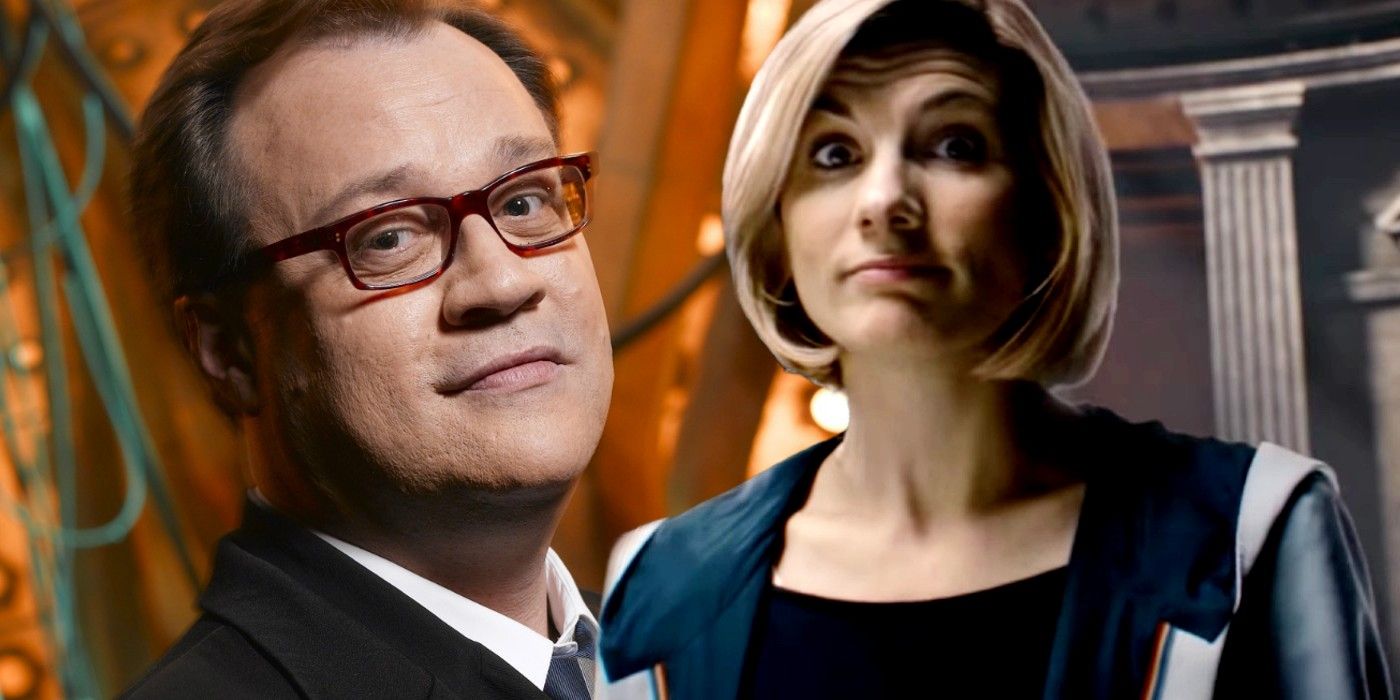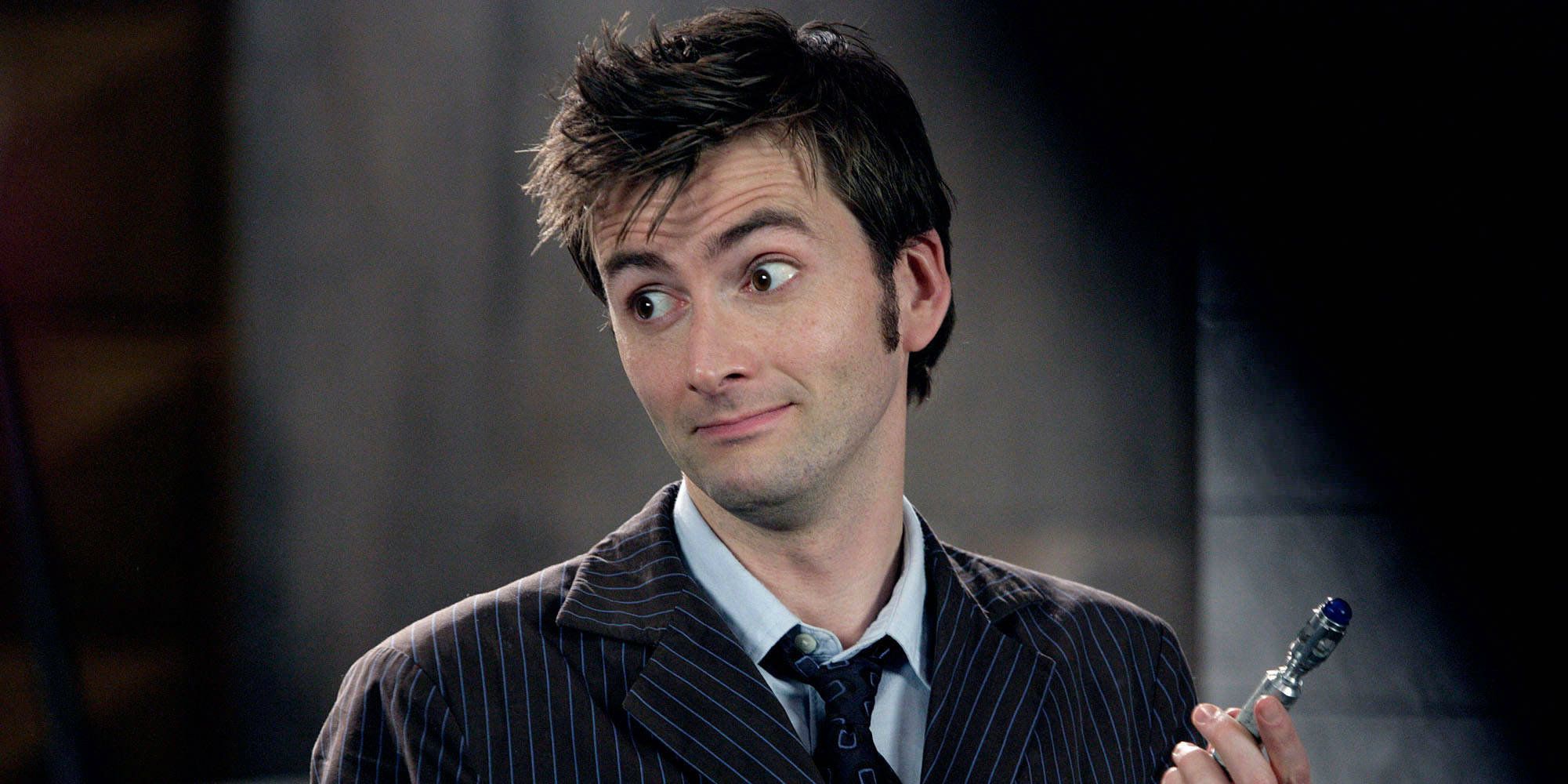Doctor Who rehiring Russell T. Davis to replace Chris Chibnall in the showrunner's seat is a masterstroke of the highest order, and the best possible choice for the Time Lord's future. When BBC producers cautiously decided to regenerate Doctor Who in 2005, Russell T. Davis was the man trusted with their TARDIS keys. From both a critical and commercial standpoint, the appointment couldn't have gone better, and Davis handed over a reinvigorated Doctor Who to his successor, Steven Moffat, who earned accolades of his own with Matt Smith and Peter Capaldi. Current Doctor Who showrunner, Chris Chibnall, has experienced a more divisive tenure, and recently set his departure for 2022 following one final season and a series of specials building toward Jodie Whittaker's regeneration.
Arguably, picking the right successor for Chibnall was more vital to Doctor Who's continued prosperity than casting the next Doctor, and the BBC has now made its decision. Russell T. Davies will be returning to Doctor Who beginning with the 60th anniversary in 2023 "and series beyond." It's an appointment Doctor Who fans didn't dare speculate about, but Russell T. Davies isn't only the perfect showrunner choice - his rehiring proves the BBC knows exactly what modern Doctor Who is missing.
Taking over in 2016, Chris Chibnall reinvented Doctor Who completely. Some of those bold changes worked (a female Doctor, modern camerawork), others did not (rewriting canon with the Timeless Child, limiting the presence of established villains). That wholesale reinvention triggered a downturn in critical reception and viewership (after an initial boost), and many would agree Chibnall tried too hard to leave his stamp upon this 60-year franchise. When Russell T. Davies revived Doctor Who in 2005, he modernized the property completely, but maintained a firm grasp on the past. It was, after all, Davies who fought to continue classic canon, rather than rebooting. There's no better showrunner to bring Doctor Who back to its roots, and reclaim fans who drifted away like David Tennant saying goodbye to Rose at Bad Wolf Bay.
Perhaps the greatest downfall of Doctor Who's Chris Chibnall era was the storytelling - his 2 seasons thus far struggling with long-term payoff, going political without being overzealous, and nailing the dynamic among TARDIS companions. By contrast, storytelling is Russell T. Davies' bread and butter - not just in Doctor Who, but Queer as Folk, It's A Sin, Torchwood, etc. Davies' "Bad Wolf" arc set the template for season-long narratives in modern Doctor Who, while his preference for a less crowded TARDIS worked far better than Thirteen's gaggle of companions fighting over screen time. Across 15 years of new Who, the most memorable episodes still hail from the Russell T. Davies era. "Dalek," "The Empty Child," "Blink," "The Girl in the Fireplace," and "The End of Time" are bona fide classics (that have all aged surprisingly well), and later seasons haven't quite matched the consistent script quality Davies delivered while on Doctor Who.
Some might perceive rehiring Russell T. Davies as a step backwards for Doctor Who - like an old 1980s glam band getting back together and hoping the magic's still there. But therein lies the true mastery of Davies' Doctor Who return. Though his projects all carry common themes and recognizable hallmarks, Russell T. Davies is renowned as a progressive mind who rarely repeats himself. Though his Doctor Who second coming is clearly intended to steady the ship after some rocky Chibnall waters, there's more chance of the Daleks forming a poetry club than Davies rerunning his 2005-2009 Doctor Who glory years all over again. Future seasons will, of course, feel more like home with a familiar face at the helm, but audiences can also expect an evolution similar to (if not quite as drastic as) when Russell T. Davies was hired the first time around.


